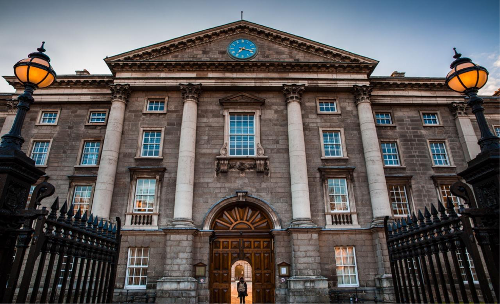jane stout
Because of our diverse cultural backgrounds the Phonetic Planet team is forever exploring reading material from places that are familiar to us. A recent article in an Irish news provider introduced us to Jane Stout, and we immediately knew that we had to learn a little more! In that article she described an experience of hers during a science lesson in which high school students could identify the parts of a flower correctly on a diagram but struggled to identify real flowers by name. Dr. Stout is a professor of Botany at the School of Natural Sciences in Trinity College Dublin, and is passionate about the changing experience of childhood in a world increasingly filled not only by technology but also by manicured lawns, urban sprawl and an increasing lack of outdoor sensory experience during the most formative years in a young life.
Because of our diverse cultural backgrounds the Phonetic Planetteam is forever exploring reading material from places that are familiar to us. A recent article in an Irish news provider introduced us to Jane Stout, and we immediately knew that we had to learn a little more! In that article she described an experience of hers during a science lesson in which high school students could identify the parts of a flower correctly on a diagram but struggled to identify real flowers by name. Dr. Stout is a professor of Botany at the School of Natural Sciences in Trinity College Dublin, and is passionate about the changing experience of childhood in a world increasingly filled not only by technology but also by manicured lawns, urban sprawl and an increasing lack of outdoor sensory experience during the most formative years in a young life.
We are so delighted to learn that Dr. Stout has recently won the British Ecological Society’s award for ecological engagement for her work on the causes and consequences of decline in bees. She has led the All-Ireland Pollination Plan as well as a pollination plan on the campus of Trinity College. Despite being as busy as the proverbial bee, we did catch up with her at the end of Trinity’s Spring Semester, and were glad of the chance to chat a little before Jane took a well earned summer break.
Jane, where in the world did you grow up?
I grew up in a small housing estate on the edge of a beautiful old village in rural Northamptonshire, England. Our house looked out over wheat fields at the front and had lots of trees out the back- I woke in the mornings to the sounds of wood pigeons cooing, and often fell asleep at night to the sound of owls swooping through the trees.
What are some of your favorite memories from childhood?
I remember sledding down the hill at the back of the estate with five of us on top of a piece of hardboard, laughing until my sides ached with my friends; and walking through the local fields to collect blackberries. Other childhood memories include walking in the woods with my friends or family, and cycling round the estate as fast as we could go.
Do you remember one special place with particular fondness?
Probably the village primary school playground- lots of memories of playing with my friends there. My own back garden was also a special place to me during my childhood and I can recallhours of unstructured play taking place there with my friends and family
How has nature inspired you to live the life you are currently living?
I grew up in the countryside and my parents were both keen on nature and gardening. My father would walk in the local woods, spotting birds, and my mother taught me the common names of many wildflowers. My interest in ecology as a subject blossomed on a sixth form biology field trip when studying leaf litter and aquatic ecology. Somethingabout that experience just clicked and I realized that I enjoyed putting the pieces together and trying to understand living systems. I studied environmental science at Southampton University, and when I graduated went to Tanzania on a voluntary conservation expedition. By this time I was an enthusiastic ecologist, but my interest in bees and pollination was cemented when I went back to Southampton to work on butterfly and bee behavior with the scientist who became my PhD supervisor.
I am now a university professor, teaching and conducting ecological research. In addition, I am very involved in campus sustainability and national conservation projects, as well as both national and international research programmes. I am passionate about preserving nature for both our own health and for future generations and I do try to practice what I preach. However, I know that I still have an environmental footprint which is ultimately unsustainable- it’s hard considering my busy life with two children.
Jane, can you recommend a special book, or books, from your childhood?
- The Secret Garden, by Frances Hodgson Burnett
- The Owl Who was Afraid of the Dark, by Jill Tomlinson
- Tom’s Midnight Garden, by Philippa Pearce
- Heidi, by Johanna Spyri
- The Island of Adventure, by Enid Blyton
All of these are favorites of mine, and feature children enjoying the outdoors and being inspired by aspects of nature, except the owl………..Being afraid of the dark myself as a child, I think this book helped me to get over that!
Our sincere thanks to Dr. Jane Stout, for taking the time to chat with us and reminisce abouther own childhood. To learn more about her huge interest in keeping children connected with nature, we encourage our friends and followers to read a recently published article of hers at the following link: http://www.irishtimes.com/news/science/21st-century-childhood-needs-to-reconnect-with-nature-1.3091031





